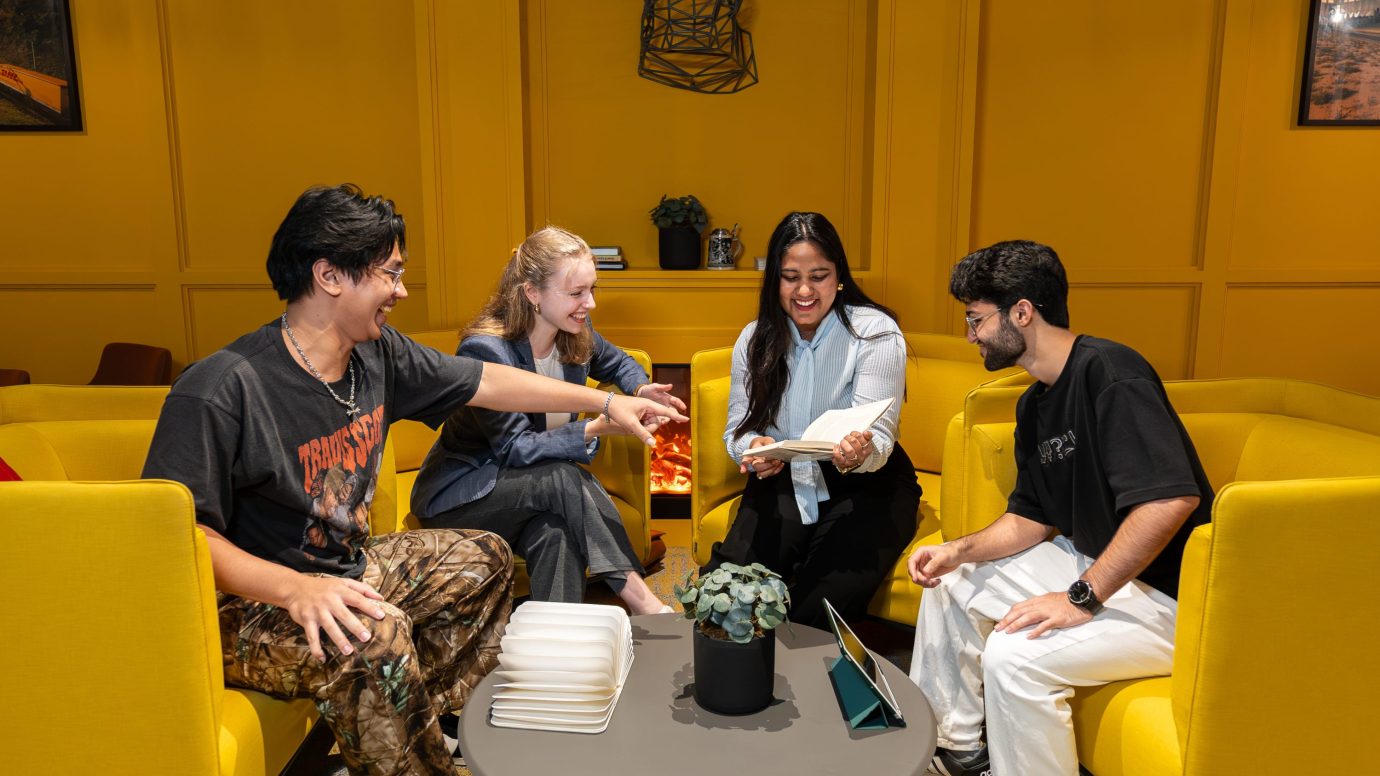
- A first of its kind: UE Dubai introduces Buddiz AI – digital assistants trained on course-specific materials and assignments that continuously evolve through individual student interaction.
- Each “buddy” develops unique strengths, shaped by the learner’s questions, study habits, and problem-solving strategies.
- Embedded in the Digital Business & Data Science program, the project explores the structured and responsible integration of AI into higher education.
Berlin/Dubai, 02. September 2025. While universities in Germany are still debating how to handle ChatGPT and similar tools, the University of Europe for Applied Sciences (UE) has launched a unique initiative at its Dubai campus: Buddiz AI – an academic artificial intelligence assistant designed exclusively for educational use. For the first time, every student receives a personal digital “buddy” that not only starts with a foundation based on course-specific materials, but also develops further with every interaction.
Unlike generic chatbots, Buddiz AI is built on a tailored academic dataset – including syllabi, assignments, and exam requirements – before being “handed over” to students. From that point on, it grows with each learner, taking up their questions, problem-solving approaches, and feedback. A key element of the initiative is reflection: students are encouraged to critically evaluate their buddy’s responses, question its suggestions, and meaningfully integrate relevant insights into their own work. Over time, this process creates highly personalized digital companions – each with distinct strengths and ways of working.
“This project is not about replacing human effort, but about enriching the learning process with an interactive and evolving partner,” says Prof. Dr. Eman AbuKhousa, Professor of Data Science and Communications and head of the project. “As the assistant’s knowledge expands with every exchange, learning becomes more personal – and more demanding – in ways that foster deeper reflection and independent thinking.”
The project is currently embedded in the curriculum of the Digital Business & Data Science program, where students use Buddiz AI both as a practical helper and as an intellectual sparring partner. UE sees this initiative as a model for how artificial intelligence can be integrated into higher education in a structured and ethical way – fostering innovation while equipping students with the skills needed to succeed in an AI-driven future.
A recent survey by the Centrum für Hochschulentwicklung (CHE), conducted as part of the University Ranking in the winter semester 2024/25, underlines the relevance of this approach: more than 90 percent of students in Germany already use AI tools. One quarter use them daily, around 40 percent weekly. At the same time, the study shows that usage often takes place without sufficient didactic support: training opportunities offered by universities to build AI competencies were rated only 2.7 out of 5 stars, and half of the students expressed a need for more learning opportunities in this area. Universities are therefore faced with the task of actively shaping the use of AI. UE’s approach is not to prohibit the technology, but to embed it into structured teaching formats – while at the same time conveying ethical standards.